Historical Overview of DLE Department
Leading in the Development of Bilingual-Multilingual Teacher Education and Academic Support for Educational Equity and Justice.
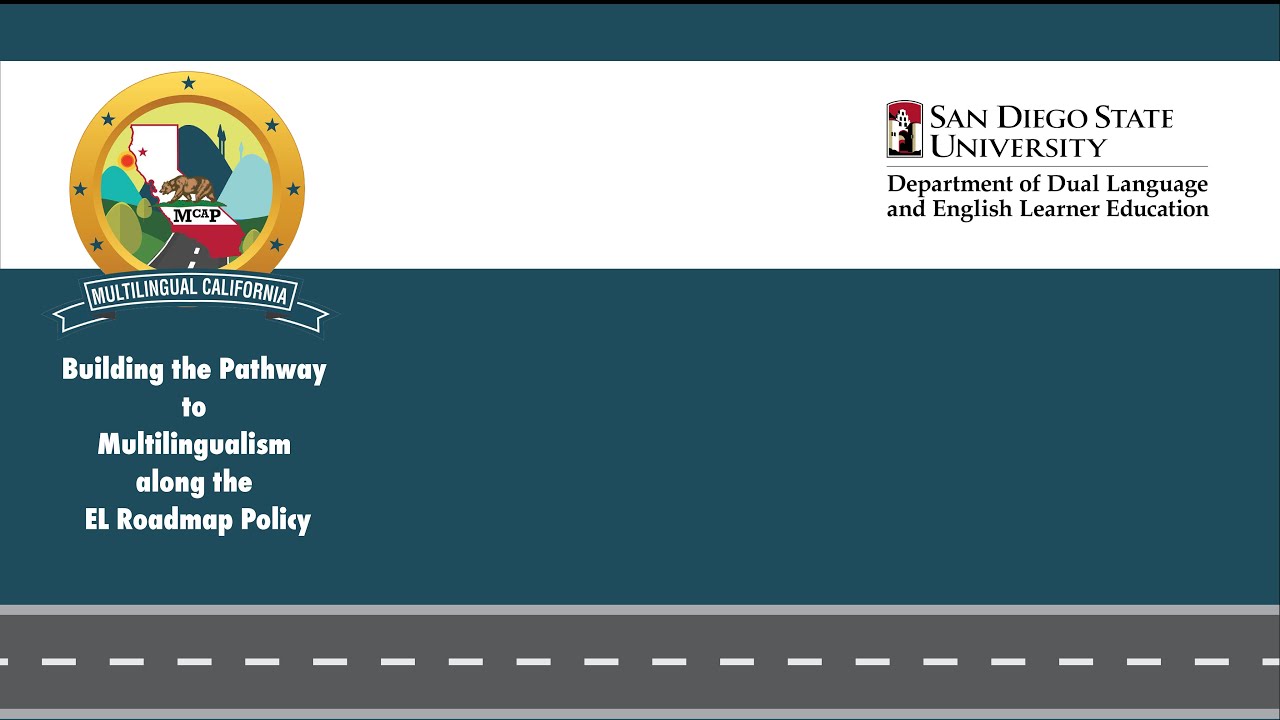
At the very heart of the movement for Latino/Chicano and cultural pluralistic education in San Diego were the efforts to build San Diego State University into an institution with programs and initiatives that could serve as forces for educational equity, justice and access. All over the country, the creation and building of Chicano and Ethnic Studies departments in colleges and universities became the backbone of engaging young activists in understanding their history and developing consciousness about the dynamics of injustice and resistance within their communities and the nation. Given student protest on social justice at SDSU in the late 1960’s and early 1970’s, by 1974, Dr. Tomas Arciniega was named Dean of the SDSU College of Education (COE). A dedicated and socially conscious educator, he provided leadership in the development of faculty that had central to their research agenda educational equity and social justice, and the pedagogical skills to prepare teachers in bilingual education and promote the values of cultural pluralism to impact the local school communities. In addition to the development of Ethnic Studies departments at SDSU, in the COE Dr. Arciniega began to build a teacher preparation program to feed a bilingual education movement in the 1970’s, with the utilization of public and federal resources to convene and host key gatherings dedicated to these issues, and building a body of knowledge and models of what education should be for culturally diverse students. Similar activities took place in other cities of California, with San Diego State University COE becoming a lead institution in California. Such activities correlated with the “golden period of civil rights of 1964 to 1980” that was an impetus for the rise of programs with a foundation based on language rights, critical pedagogy and critical race theory.
In the arena of language rights and policy, in 1974, shortly after the Lau v. Nichols Supreme Court Decision (1974), Tomas Arciniega, the Dean of San Diego State University, began to pull together faculty across the nation and developed the Institute for Cultural Pluralism (ICP). Alberto Ochoa and Reyes Mazon were invited and recruited to SDSU to be part of the COE. Other ethnically diverse scholars were also invited to join San Diego State University. Alberto explains: “Dr. Arciniega was a visionary who taught me the lesson of building critical mass. He brought in 15 Latino scholars who had earned a doctoral degree in various fields of education to SDSU at that time to influence the work of the university, and within a few short years, established the Institute for Cultural Pluralism and its core programs.” The Institute for Cultural Pluralism under the Directorship of Reyes Mazon (language researcher and project manager) included four components supported by the federal government:
- The National Origin Desegregation Assistance Center (NODAC) Lau Center, funded by federal funds under Title VI, from 1975 – 1987, was responsible for providing technical assistance and serving over 104 school districts in Southern California that were found to be in violation of the Lau Supreme Court Decision of 1974. San Diego’s Lau Center was one of ten such national centers. In working with districts, the NODAC-Lau Center used a six-step process that involved creating district-wide steering committees with community and school district stakeholders that were charged with developing a district wide Master Plan-under the Lau Task Force Remedies. Alberto Ochoa was appointed to lead the NODAC Lau Center from 1975-1987. The six-step approach assisted school districts to develop district-wide Lau Master Plans that required approval from the U.S. Office of Civil Rights (OCR) in Region IX that was headed by John Palomino. The six step approach covered: 1. Orientation to the Title VI of the Civil Rights Act of 1964 that prohibits discrimination on the basis of race, color, and national origin (language) in programs and activities receiving federal financial assistance; 2. Establishment of a community steering committee (with parent participation); 3. District Needs Assessment and Gap Analysis; 4. Development of a District-wide Master Plan; 5. Development of a Management plan; and 6. Implementation and monitoring of the Lau Master Plan. The OCR Region IX OCR considered "Lau Remedies" as requiring bilingual education at the elementary and middle school levels for national-origin minority students who were dominant speakers of a language other than English. The large majority of southern California school districts developed a Lau Master Plan that was approved by OCR such as Los Angeles USD, Long Beach USD, Santa Ana Unified, San Bernardino, San Diego USD, Sweetwater Union HSD, Chula Vista ESD, yet by 1982 under the Reagan administration, the federal government deferred to states in the enforcement of the Lau Master Plan. Lead SDSU NODAC personnel included Harriet Romo, Vida Van Brunt, Len Fierro, Iris Santos Rivera, Arnoldo Uribe, and Juan Hurtado.
- The Multifunctional Resource Center (MRC), funded by federal Title VII monies from 1975 until 1993, was responsible for providing professional development to school personnel in bilingual education instruction and program development in southern California. This MRC was led by Rafael Fernandez 1975-1989 and in the 1990’s by Drs. Ruben Espinosa and Rocio Moss. The MRC developed a professional development process for program organizational change and to support improvement of student learning through enhancing biliteracy teacher competency in planning and delivering bilingual instruction, strengthening administrator skills, and familiarizing all personnel with research-based practices that increased effective learning for students and specifically emergent bilingual students
- The Bilingual Bicultural Resource Center (BBCC), funded by federal Title VII from 1975-1987, developed into a national site for bilingual materials, with over 70 thousand K-12 instructional books and texts from throughout the Spanish-speaking world. To develop and staff this initiatives, SDSU deliberately reached out to find visionary educators with Leonard Fierro directing the Bilingual Collection Center. He had served as coordinator and then director for the English as a Second Language (ESL) Bilingual-Bicultural Demonstration Center for San Diego County where he developed resource materials for teachers and students and worked to award college credit for bilingual educators via summer programs in conjunction with local colleges. In 1975, Len Fierro came on board at SDSU as Co-director for the SDSU Bilingual Bicultural Resource Center, with Consuelo Alcala designated as the coordinator in the use of the collection that guided teachers to examine the strengths and weaknesses of the instructional materials for biases and cultural relevance. The BBCC became part of the Multicultifunctional Resource Center and used by the Multicultural Department in the College of Education.
- Multicultural Department was created in 1978 to institutionalize the work of the Institute for Cultural Pluralism (ICP) and to develop biliteracy teachers and bilingual specialists. The knowledge and skills acquired under the MRC, NODAD-Lau Center and the BBCC influenced the curriculum and courses of the Multicultural Department. The founding tenure track faculty (1975-199X) included Reyes Mazon, Alberto Ochoa, Gus Getner, Ana Maria Rodriguez, Natalie Kuhlman, Ruben Espinosa, and Richard Pacheco. The primary goal was to work with in-service teachers to complete a Bilingual Cross Cultural Specialist Credential and to develop California’s bilingual teacher credential. In 1982 a major COE reorganization, via the activism of faculty and the San Diego County bilingual educational community, the Multicultural Department became the Policy Studies in Language and Cross Cultural Education (PLC). The Bilingual Multiple Subjects and Single Subject Credentials were approved by the California Commission of Teacher Credentialing and became the domain of the PLC Department. The ICP continued until 1993 and its pedagogical values were incorporated and enhanced by the PLC Department in its MA Degree program and doctoral programs in the late 1980’s to the present.
The credential and graduate courses were guided by the pedagogical principles of the CHCALT Model (The Community, Home, Cultural Awareness, and Language Training). Initially by 1978, the CHCALT model was instituted for the Teacher Corps program that was implemented in the School of Education at San Diego State University and for in-service teachers specifically leading to a Specialist Credential for Native American, African American, Filipino, and Latino teachers. The CHCALT model had four program content components: (a) Philosophy of Education for the Culturally and Linguistically Different; (b) Sociocultural Awareness-Home and Community Based; (c) Oral Language and Assessment Techniques; and (d) Diagnostic and Prescriptive Strategies.
By 1982, the Policy Studies Department began to operationalized its curriculum framework for its bilingual teacher credentials, MA program, and doctoral courses. It oriented and expanded the CHCALT model to seven components:
- Philosophical orientation: Pedagogy & Ideology of Education through critical pedagogy
- Sociocultural: Home/ Teacher/ School Connections & Community Influences
- Language & Literacy Policy: Biliteracy instructional programs, curriculum focus, & cultural relevant and sustaining pedagogical practices
- Multi-dimensional Assessment: Diagnostic connections between authentic and community informed measures.
- Curricula in Critical Literacy, Language & Social Justice: The educator as a cultural broker and link with community.
- Action Research for Curriculum & School Transformational Change: Working with and through school communities to improve access to democratic schooling.
- Democratic Schooling Leadership & Professional Development for the Teacher Profession: Developing culturally democratic school practices and leadership.
By the early 1990’s, the Bilingual, Cross-cultural, Language and Academic Development (BCLAD) programs and the California Standards for the Teaching Profession (CSTP) provided a common language and a vision of the scope and complexity of the profession by which all teachers can define and develop their practice. In 2009, the CSTP now included:
- Engaging and Supporting All Students in Learning
- Creating and Maintaining Effective Environments for Student Learning
- Understanding and Organizing Subject Matter for Student Learning
- Assessing Students for Learning
- Planning Instruction and Designing Learning Experiences for All Students
- Developing as a Professional Educator
Of importance to the PLC/DLE Department is that additional Teacher Performance Expectations added to the CSTP, namely, in Bicognition, Social Justice, and Teacher as a Cultural Broker.
Dual Language Education and English Language Learner Education Department (DLE)
The updating of College of Education’s programs to meet the needs of each era continues. In 2015, after much dialogue in reorganizing the COE and resistance by the San Diego bilingual community to eliminate PLC and other departments that failed approval from the SDSU Senate, the PLC faculty voted to provide name recognition of its fundamental work of training biliteracy educators. The Department of Policy Studies in Language and Cross Cultural Education (PLC) was renamed as the Dual Language Education and English Language Learner Education Department (DLE) that continues to offer the Bilingual Multiple Subjects and Bilingual Single Subject Credentials, a Master of Arts Program - Critical Literacy & Social Justice, and teach courses in the Joint SDSU-Claremont Graduate University Doctoral Program. The DLE faculty seeks to develop scholars committed to research on democratic schooling, social justice and equal educational outcomes for all students, and the improvement of educational systems serving ethnically and linguistically diverse communities. Historically, since 1979, over 2,800 teachers have received bilingual authorization credentials and degrees from San Diego State University – all of them steeped in biliteracy and critical pedagogy. SDSU remains one of the largest sources of bilingual teachers in the state – widely viewed as the cutting edge in teacher preparation.
Historical PLC/ DLE Department Chairs’
Dr. Gustavo Getner, Coordinator of Graduate Bilingual Specialist Credential 1976-1978
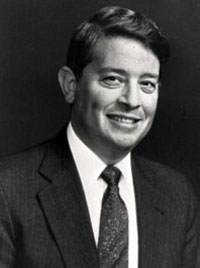
Dr. Manuel Pacheco, Chair 1978-1980
Dr. Henry Trueba, Chair 1980-1983
Dr. Ana Maria Rodriguez, Chair 1983-1984
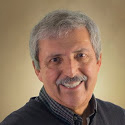
Dr. Alberto M. Ochoa, Chair 1984-1989
Dr. Natalie Kuhlman, Chair 1989-1995

Dr. Alberto M. Ochoa, Chair 1995-2005
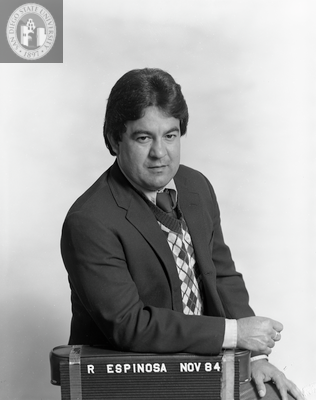
Dr. Ruben Espinoza, Chair 2005-2008
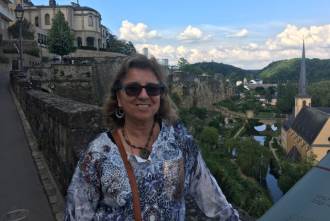
Dr. Karen Cadiero-Kaplan, Chair 2009-2012
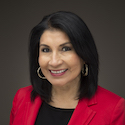
Dr. Cristina Alfaro, Chair 2012-2016

Dr. Karen Cadiero, Chair 2016-2017

Dr. Cristina Alfaro, Chair 2017-2018
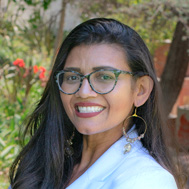
Dr. Margarita-Casas-Machado, Chair 2018- 2023
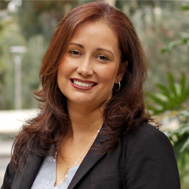
Dr. Sera Hernández, Chair 2023- present
Past PLC-DLE faculty hired with a pathway to tenure and promotion
Tenure is determined by a combination of research, teaching, and service, with each factor weighted according to the values of a particular university, college or department.
- Alberto M. Ochoa, Language Policy & Social Foundations
- Adelina Algeria, Science & Mathematics
- Cristina Alfaro, Reading & C L1 & L2 Methods
- Karen Cadiero-Kaplan, Curriculum Methods & L1 & L2 Methods
- Ruben Espinosa, Research Methods
- Gustavo Getner, Multicultural & Ethnic Studies
- Cristina Gomez, Reading L1 & L2 Methods
- Evangelina Bustamante-Jones, Curriculum & Curriculum Methods
- Natalie Kuhlman, Linguistics & Language Acquisition
- Rene Nuñez (Jt. 50% with Chicana/o Studies,) Social Foundations
- Manuel Pacheco, Language & Curriculum
- Richard Pacheco, Psychological Foundations & Social Studies
- Alberto Rodriguez, Science & Multicultural Methods
- James Rodriguez, Psychological Foundations & ECE
- My-Luong Tran (Jt. 50% with Teacher Ed) Multicultural Studies
- Enrique Trueba, Anthropological Social Foundations
- Russell Young, Multicultural Foundation Studies
Sources
- Olsen L. (2021) Legacy of courage and activism. California Together: Caltog.co Publications.
- SDSU Graduate Bulletin’s files (1970-2020)
- Ochoa, A.M. personal files (1975-2020)

